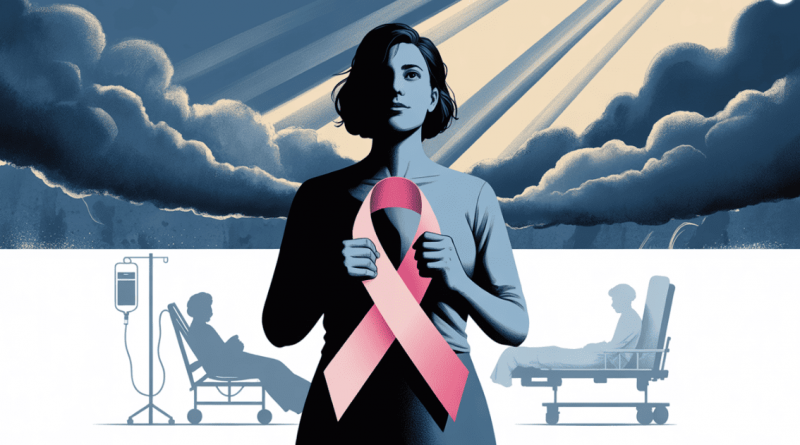Rising Stronger: How One Woman’s Battle with Breast Cancer Became a Global Call to Action
Everyday moments—tea with her mother, quiet evenings with her husband, playful time with her dogs—have acquired a new sacredness.
In November 2023, Sudnya Ratish Thakur, a 52-year-old woman known among friends for her laughter and tireless energy, noticed what seemed like a minor scratch on her breast. She brushed it off, assuming her two playful Rottweilers had left their mark. But the discomfort lingered. Antibiotics offered no relief, and soon a lump began to form. A gnawing instinct told her that this was not something to be ignored.
What followed was a blur of medical tests—mammography, tomography, fine needle aspiration, biopsy, and exhaustive blood work. The diagnosis landed with devastating clarity: Grade 2 breast cancer.
Those three words—“you have cancer”—shifted the ground beneath her feet. Like countless others before her, she cycled through disbelief, denial, and silent prayers for a different outcome. But there was no avoiding the truth. The disease was real, and it had chosen her.
At home, the diagnosis unsettled everything. Work, routines, and even conversations were suddenly shadowed by fear. Yet, amid the turbulence, two figures held her steady: her husband and her mother. Their patience, love, and unshakable support became the pillars on which she could stand.
The Long Road of Treatment
The medical journey ahead was grueling. Surgeons performed a partial mastectomy, removing the diseased tissue. Then began the marathon of chemotherapy—eight punishing cycles—followed by a month of radiation.
Each stage carried its own burden: relentless fatigue, waves of nausea, hair loss, and long hours inside sterile hospital wards. Yet, rather than surrendering to despair, Sudnya and her husband invented their own coping strategy. They called her chemo sessions “hospital dates.” They would sit together, eat simple meals, share laughter, and turn those otherwise bleak hours into moments of companionship.
Parallel to the clinical care, she turned toward Ayurveda to soften the blow of side effects and rebuild her body. “It wasn’t only about treating cancer,” she reflects. “It was about healing my whole self.”
For many, such treatment is remembered only as suffering. For Sudnya, it became a crucible in which her resilience was forged. The journey was not just about defeating cancer—it was about refusing to let the disease dictate the terms of her life.
From “Why Me?” to “Bring It On”
Eighteen months later, Sudnya stands transformed. She is on minimal medication, her strength slowly restored. The woman who once asked “Why me?” now greets life with the defiant words, “Bring it on.”
Everyday moments—tea with her mother, quiet evenings with her husband, playful time with her dogs—have acquired a new sacredness. Cancer reshaped her, but it did not break her. Instead, it taught her to value the smallest fragments of joy and to hold gratitude at the center of her existence.
It was during this period of recovery that she encountered the Breast Cancer in Young Women (BCYW) Foundation, based in Denver, USA. The organization confronts a deeply troubling trend: in India, the average age of breast cancer diagnosis is falling rapidly. By 2040, it is projected to be as low as 33.7 years—meaning today’s college students and young professionals already stand in the danger zone.
For Sudnya, this was more than a statistic. It was a mission waiting to be embraced. Her story, once a deeply personal struggle, could now become a tool to save others. Through BCYW, she began sharing her journey publicly, reminding women that early detection is vital, treatment is possible, and resilience makes recovery real.
Beyond Survival: A Global Sisterhood
In her advocacy, Sudnya emphasizes simple but lifesaving advice: never dismiss changes in your body, never ignore lumps or persistent pain, and always seek medical guidance early. For many women, silence and hesitation prove fatal. Awareness is power—and in the case of breast cancer, it can mean the difference between life and death.
Through schools, colleges, and community initiatives, BCYW is spreading this message worldwide. And voices like Sudnya’s lend credibility and urgency. She is not speaking as a statistic but as someone who walked through the valley of uncertainty and emerged stronger.
“Cancer broke me down,” she says candidly. “But it also rebuilt me.” For her, resilience is not about returning to an old normal. It is about constructing a new life—one that is stronger, wiser, and deeply thankful.
Her journey is no longer confined to personal survival. With BCYW, she has entered a global sisterhood of survivors and advocates determined to ensure no woman, especially young women, suffers in silence. Together, they are reshaping the narrative of breast cancer from fear to empowerment.
Lighting the Way Forward
Today, Sudnya Thakur is more than a survivor. She is a beacon of hope and a messenger of courage. Her battle, though deeply personal, has evolved into a universal story of human strength.
In every lecture she gives and every story she tells, she insists that cancer is not an end. It is a challenge—terrifying, yes, but one that can be met with early action, medical care, and inner resilience. Her life is testimony to the idea that resilience is not merely inherited—it is chosen.
By making that choice, Sudnya has done more than endure. She has risen stronger, carrying with her a message that transcends borders: cancer does not define the end of a woman’s life, but rather the beginning of a new chapter—one filled with purpose, gratitude, and the power to inspire.



